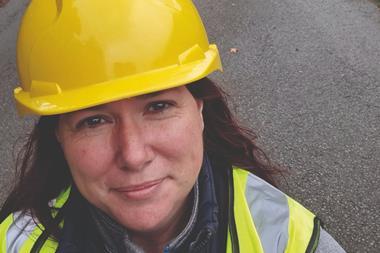After two years of unprecedented challenges faced by real estate, experts share their predictions for 2022.

Jace Tyrrell
Chief executive, New West End Company
It is no secret that the high street had a difficult year last year, with the challenges of the pandemic building throughout 2021. But despite the numerous hurdles – including the most recent ‘plan B’ measures – businesses in London’s West End are as determined and resilient as ever.
For 2022, my predictions include London’s West End bouncing back to £7.5bn annual turnover, marking encouraging progress on our target back to pre-Covid £10bn annual turnover as soon as possible.
There are a number of factors that will help us reach this target – namely the highly anticipated opening of the £18bn Elizabeth line and leading innovations such as the first zero-till AI fashion store. Where better than the West End? However, we can’t do it alone.
Government needs to consider measures to support businesses, not only in the West End, but across all city centres, to ensure they are in the best possible position to thrive in 2022.

Jason Leek
Chief executive, Riverstone
This is going to be an exciting year for Riverstone. Not only will we be welcoming our first residents into our Kensington and Fulham residences, but we also expect to be expanding our portfolio with new acquisitions.
With prospective residents rightly enquiring about our sustainability credentials, we expect to see greater commitment to environmental and sustainable values from the industry this year.
We have set ourselves ambitious ESG targets across our residences. This includes exploring new technologies and innovations that improve our overall energy consumption and reduce our carbon footprint, as well as avoiding landfill waste at all costs and ensuring we do not use single-use plastic.
We are also looking forward to expanding on this from a social perspective by creating hubs at our residences that promote social connectivity, intergenerational activity and a positive approach to wellbeing.

Nikki Webber
Strategy and policy, VU.CITY
Last year began boldly, with the promise of planning reform that proposed a simpler system and a shift away from the current structure, which is accused of slowing down important development.
The digitisation of the planning system was the only element of the white paper that was met with universal approval, demonstrating a real political desire to see this happen.
If we are serious about delivering meaningful development that improves the fabric of our society, using the right digital platforms will be vital. Getting stakeholders and residents on board quickly and effectively will require being able to visualise change and assess impacts.
The situation remains unclear, but one thing is certain: local authorities don’t have the resources to implement meaningful change. To truly make better planning decisions efficiently, investment in digital tools is vital and technology should be at the forefront of any investment in local authorities. There is a reason the increased use of digital tools was so widely supported: because they are critical in bringing about real change and improvement.
Let’s hope 2022 brings more digital adoption, and the ability to deliver the best possible cities for all.

Emma Harvey
Programme director, Green Finance Institute
Last year saw a significant uplift of interest from the finance sector in the decarbonisation of our buildings. In 2022, this momentum will carry forward. Supporting the heat and buildings and net zero strategies’ recommendations, we’re looking to see enabling policies and clear regulations introduced to drive demand for both retrofitting existing stock and delivering better new builds.
A greater focus on whole-life emissions will necessitate more accurate assessments of operational emissions, through a metered energy savings protocol, and an acceleration of the use of more sustainable building materials. The finance sector will respond with innovation and will centre more of its work on place-based investment, recognising the expertise of local influencers to deploy capital to impactful projects with tangible social – as well as green – value.
The massive opportunity for private finance is equally one for supply chains, which need to be supported by demand aggregation, guarantee schemes and standardised training programmes to grow their skillbase and take advantage of the urgent job at hand.
Continue to part nine here
Predictions for 2022: Brace yourself…
- 1
- 2
- 3
- 4
- 5
- 6
- 7
- 8
- 9
- 10
- 11
- 12
- 13
- 14
- 15
- 16
- 17
- 18
 Currently reading
Currently readingPredictions for 2022: Brace yourself (part eight)
- 19
- 20
- 21
- 22
- 23
- 24
- 25
- 26
- 27
- 28
- 29
- 30
- 31
- 32
- 33
- 34
- 35
- 36
- 37
- 38
- 39
- 40
- 41
- 42
- 43
- 44
- 45
- 46
- 47
- 48
- 49
- 50
- 51
- 52
- 53




















































































No comments yet